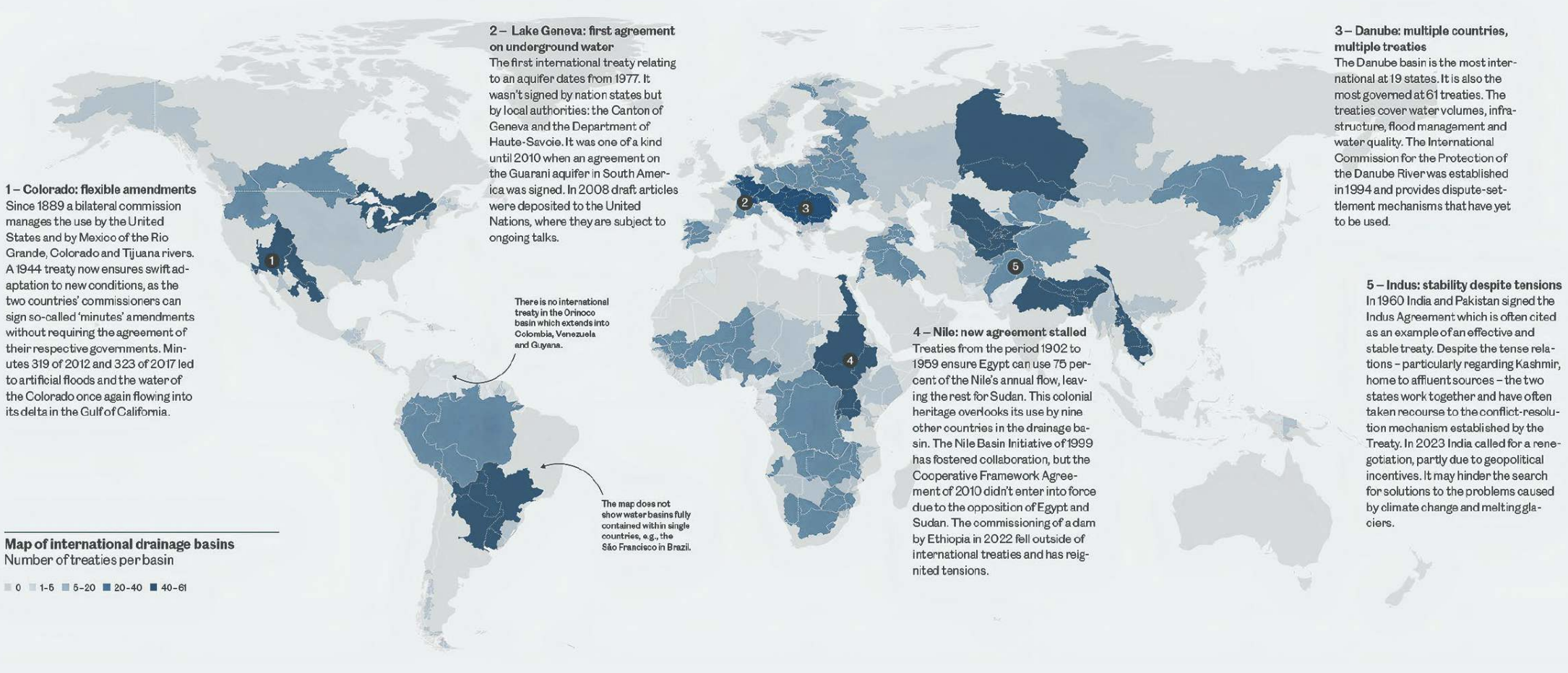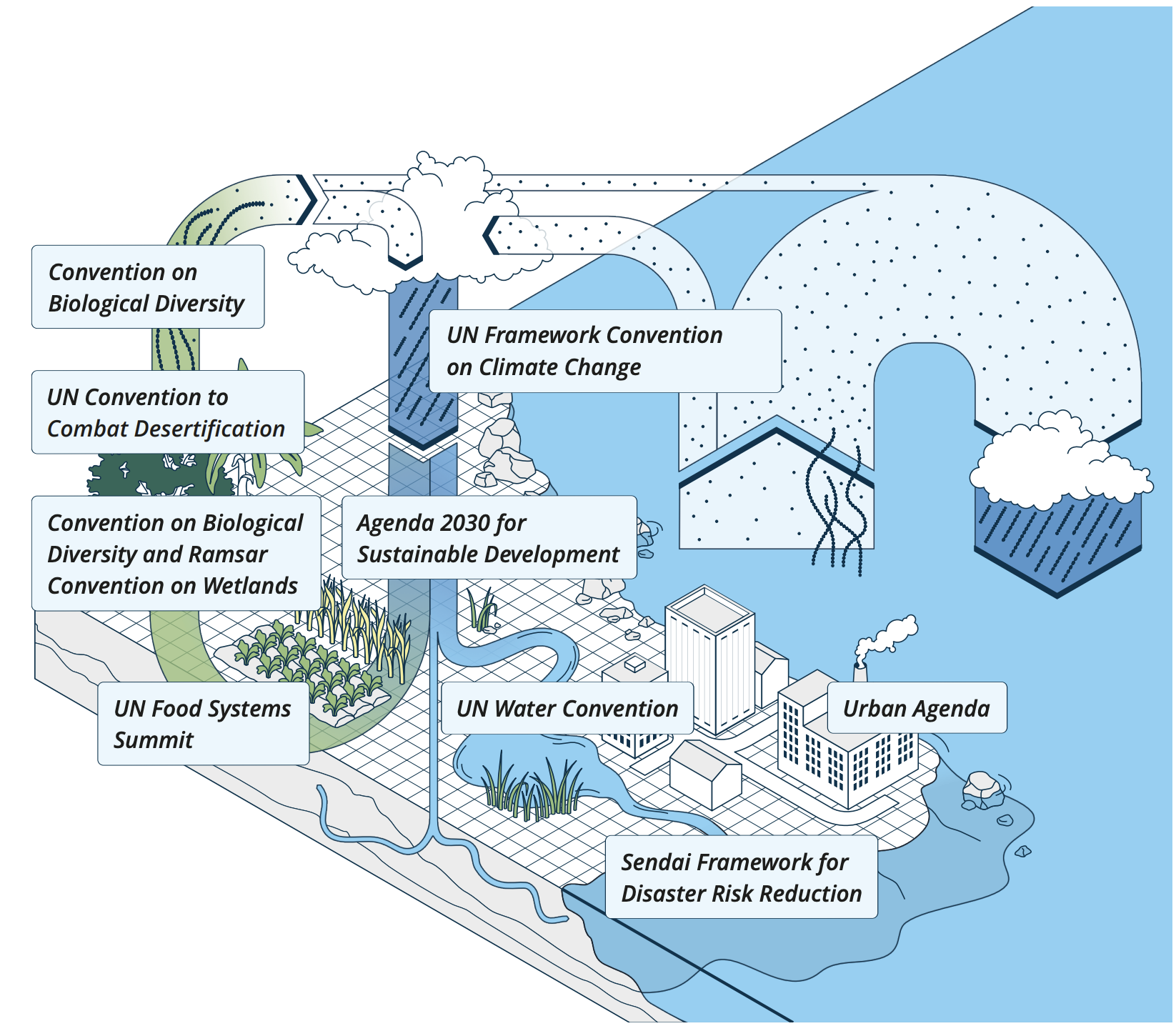Key takeaways
Acknowledging and promoting the hydrological cycle as a global common good requires just water governance that acknowledges global-local linkages and serves a multi-scale framework for action.
Water should be considered as an organising principle to successfully implement sustainable development. We must adopt a “water and beyond” perspective across all agendas and domains.
The international community must construct a fit-for-purpose governance architecture that facilitates collective and mission-centred action on water, and accounts for the major legal and institutional implications of changes in atmospheric moisture flows and their differentiated welfare consequences for communities around the world.
Instituting a just, global water-governance mechanism at the UN would incorporate a process of inclusive, multi-stakeholder dialogue and an agenda for collective action to accelerate impact. The ultimate ambition is to negotiate a global water pact with clear and measurable goals to stabilise the hydrological cycle and recognising it as a global common good. Leveraging the UN’s legitimacy and structure to consolidate the Global Water Agenda, the recent appointment of a UN Special Envoy for Water (United Nations, 2024a) could structure leadership and we recommend appointing a youth water envoy to ensure an intergenerational approach. This could lead to creating a Governing Board consisting of key UN leaders to guide the Global Water Agenda and coordinate UN agencies’ water-related work.
Implementing collaborative water governance involving multiple stakeholders, including (local) government agencies, NGOs, indigenous peoples, community groups, and business entities, in an intra- and inter-generational approach, would establish a collaborative process and engagement space connected to the global governance architecture, for consistent and continued accountability and engagement, and develop comprehensive understanding of water needs at all levels, aligned with the Just Water Partnerships objectives.
A strong and unified global water forum would provide a safe space for research, trust-building, capacity development, and accountability. Such a space would bring together all green and blue water processes and partners, and support political, cultural and policy dynamics.
We must improve education, knowledge, and awareness about: the hydrological cycle and water scarcity; agency for action at individual, institutional, and governmental levels; valuing water, acknowledging the spectrum of relationships between water and people, and linkages across sectors, geographies and generations; the major legal and institutional implications of changes in atmospheric moisture flows and their differentiated welfare consequences for communities around the world.
Strengthening water governance and establishing water authorities, where absent, would meet the overarching need to stabilise the hydrological cycle, with blue and green water governance at the heart of their missions.
Focusing on transboundary co-operation for both blue and green water would enhance collaboration and construct fit-for-purpose governance architecture to manage shared blue and green water resources sustainably and equitably.

